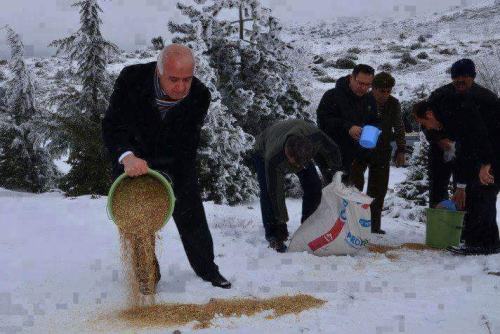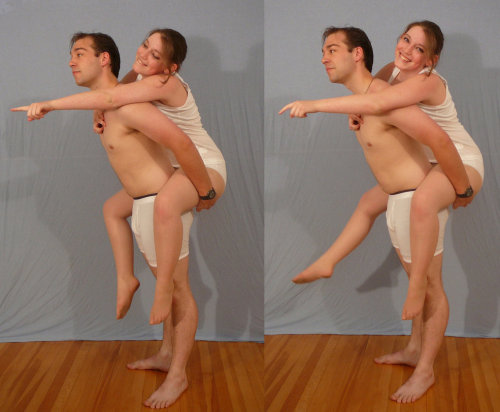Hello Elle, Do You Have Any Tips For Maintaining A Professional Network? I Know The Basics When It Comes
Hello Elle, do you have any tips for maintaining a professional network? I know the basics when it comes to networking such as reaching out to people via Linkedin, attending networking events and reaching out to professionals who work at companies of interest. However, I am not sure how to maintain a longlasting professional network effectively as I am not from a background where networking was taught. How often do you suggest reaching out to members of your network? What do you speak about when you reach out to them? How do you provide value to your network if you are still studying at university and are not in an established career?
Hello Anon,
Really great question! Let's see...
Regarding timelines, follow the 2-2-4 Rule:
After your first meeting, reach out the next day to thank them for their time and ask them to put you in touch with members of their team/company.
Two weeks later, follow up again with an update on your correspondence with those they originally put you into contact with. Thank them again for their time.
Two months later reach out and request to speak again. During that conversation update them on your professional development and (if you're interested in their field or company) ask them directly for potential in's.
After the two month mark, send them a brief noteonce every 4-5 months.
What to speak about:
My conversations usually go like this: I thank them profusely for taking the time to speak with me, I ask them how they're doing, we make small talk for a few minutes, and then I get to introducing myself thoroughly and explaining why I reached out. I also always come equipped with 3-5 questions about their career and any advice they have for me. And I always always always close the conversation with asking them to connect me with other people in their network.
The most important thing is to make the conversation as smooth as possible. You want them to like you and you definitely don't want them to feel uncomfortable so be flexible. One of the most recent men I've networked with got his hands on my resume and when he saw that I put 'classic rock' as one of my interests he insisted we talk about it for the entire 30 minute call and I had to just go along with it! So have a clear goal in mind but allow yourself to be flexible.
How often should you reach out to your network?
As often as you can handle! When I was doing my internship this summer I had at least one chat daily with a member of the firm. At first it was tedious but I eventually got into a rhythm and it just worked for me. So decide how many times per week you feel comfortable meeting with members of your network and go from there!
How do you provide value as a college student?
Short answer: you don't. And frankly, you don't need to because no one expects you to. I wouldn't worry about providing value until you're a full time worker because at this age, everyone knows exactly why you're reaching out to them and there's no need to pretend you want anything out of them except a job. This is the one time in your career where you can be positively selfish and let people help you out of the goodness of their hearts. There's absolutely nothing you can give them that they would need right now so don't worry about trying to do so!
Hope that helps!
-Elle
More Posts from Atiredsisyphus and Others

This is a very old Islamic tradition, still alive in parts of Turkey. When a white blanket of snow covers everything - people go to the tops of mountains peaks and scatter seeds and food for the birds through the snowing season so as not to let the birds die of starvation. This deed was started by the Muslim caliph Umar bin Abdul Aziz and is narrated in various books of history and quoted as “Go and spread seeds on the tops of mountains - may the birds not die of starvation in a Muslim country.”
Get over the shame and the lack of confidence and the fear of failure and the imposter syndrome. Nobody cares. Some people are cruel and mean and love to watch others fail. So what? Do you really want to prove them right? Get the fuck up, we’re chasing our dreams like our lives depend on it because, in case you forgot, they do.








SenshiStock’s gallery consists of millions of pictures that are free to use as reference.
General Drawing Poses Sit and Kneel Dramatic and Reaching Drawing Poses Magic and Hogwarts Drawing Poses Staff Weapon Pose Reference Hammer, Axe and Bat Pose Reference Sword Weapon Drawing Reference Small Bladed Weapon Pose Reference Gun Weapon Pose Reference Bow and Arrow Archery Stock Foreshortening and Perspective Poses Dynamic Flying Falling Action Poses Deafeated or Laying Drawing Poses Magic Crystal Magical Girl Wand Weapon Transformations and Dance Cards Back Pose Reference Pin Up Inspired Poses for Drawing Performances Poses Life in General Poses Fights and Fighting Pose Reference Leaning Poses Classic Sailor Senshi Poses Wings Sailor Moon Villains Pairs Romance or Couples Pose Reference All the Male Stock Hanging Stock Drawing Reference Three or More Groups Instruments Mirrors Whip Technobabble

Skin cycling works sooo well!! I’ve been doing it for about a month and my skin looks incredible 😍
do you have any words of wisdom for rejection? got some bad news tonight 🥲
rejection does not mean you are not worthy of love. rejection means it’s not the right person or sometimes not the right time. my gf initially rejected me and i was devastated then. but that didn’t make me give up on love. it didn’t make me think i was not good enough. it reminded me that some things simply don’t work out how we hope but that in the future, other things will.

Green Flags in Communication 💚💬
"I want to know when I hurt your feelings."
This shows they are willing to understand and acknowledge the impact of their actions.
"I don't want you to feel alone in this."
This shows empathy and indicates that the person is supportive and does not want the person to deal with issues alone.
"I've been struggling with ___”
This demonstrates vulnerability and trust, as the person is open about their struggles.
"How have you been feeling about ___? I know it's been on your mind a lot."
This shows concern for the other person's issues or worries, showing that they are listening and care about what's important to the other person.
"I feel __ when you __; are you open to trying __ next time?"
This is an example of constructive communication.
"What do you need from me when this happens with your family?"
This shows awareness and sensitivity to the persons family dynamics and a willingness to provide support.
"I appreciate when you ___.”
Expressing appreciation is vital for positive reinforcement and acknowledging the efforts and qualities of the other person.
"I didn't handle that well."
This is a sign of self-awareness and accountability, recognizing one's own mistakes and being open to learning and growth.
"I'm sorry, I was wrong to say that. I'll try to be more mindful in the future."
Shows you are able to apologize genuinely and a commitment to improving behavior.
"Tell me more about that; I'm really interested in hearing your perspective."
Indicates a genuine interest in the other person's thoughts and feelings.
"I noticed you seemed a bit off today. Is everything okay?"
It shows you are attentive to the other person's emotional state and a readiness to provide support.
"I'm here for you, no matter what you need."
Offers unconditional support, creating a sense of security in the relationship.
"I love how passionate you are about your hobbies. It's inspiring to see."
Expresses admiration for the other person's interests.
"Let's work on a solution together. What do you think would be fair?"
Focusing on collaboration rather than conflict.
"I trust your judgment on this."
Trust and respect for the other person's decision-making abilities.
"Your happiness is important to me. Let's make sure you're taking time for yourself."
Prioritizes the other person's happiness and emphasizes the importance of self care.
"It's okay to feel that way. Do you want to talk about it more?"
Validates the other person's feelings.
"I appreciate how you handled that situation. You're really good at ___."
Praises specific strengths or skills, boosting the other person's self-esteem.
"I know we disagree, but I respect your point of view."
Acknowledges differences in opinion while still maintaining respect and understanding.









Stills from Where is My Friend’s House? (also called Where Is My Friend’s Home?, in Persian: خانه دوست کجاست ) written and directed in 1987 by Abbas Kiarostami (Iranian film director, screenwriter, poet, photographer, film producer, b. in Tehran, 1940 – 2016), produced by Ali Reza Zarrin: a boy searches for the home of his classmate, whose school notebook he has accidentally taken.

They need more esims!
-
 what-a-fungi liked this · 7 months ago
what-a-fungi liked this · 7 months ago -
 sparklinggodess liked this · 10 months ago
sparklinggodess liked this · 10 months ago -
 elletheroyal-backup liked this · 1 year ago
elletheroyal-backup liked this · 1 year ago -
 thegirlwiththepen-blog1 liked this · 1 year ago
thegirlwiththepen-blog1 liked this · 1 year ago -
 amalclooneyera liked this · 1 year ago
amalclooneyera liked this · 1 year ago -
 justkennedysblog liked this · 2 years ago
justkennedysblog liked this · 2 years ago -
 scattered-diamondz liked this · 2 years ago
scattered-diamondz liked this · 2 years ago -
 letscandyme liked this · 2 years ago
letscandyme liked this · 2 years ago -
 jjournjournee liked this · 2 years ago
jjournjournee liked this · 2 years ago -
 vidaficrecs liked this · 2 years ago
vidaficrecs liked this · 2 years ago -
 noxsonus liked this · 2 years ago
noxsonus liked this · 2 years ago -
 whoremonal-hurricane liked this · 2 years ago
whoremonal-hurricane liked this · 2 years ago -
 mjimen19 liked this · 2 years ago
mjimen19 liked this · 2 years ago -
 jenandjuicy liked this · 2 years ago
jenandjuicy liked this · 2 years ago -
 2transform liked this · 2 years ago
2transform liked this · 2 years ago -
 uhfujhfg liked this · 2 years ago
uhfujhfg liked this · 2 years ago -
 pinkblizzard liked this · 2 years ago
pinkblizzard liked this · 2 years ago -
 hungerlking reblogged this · 2 years ago
hungerlking reblogged this · 2 years ago -
 kimelisaa reblogged this · 2 years ago
kimelisaa reblogged this · 2 years ago -
 kawaiipenguinwasteland liked this · 2 years ago
kawaiipenguinwasteland liked this · 2 years ago -
 atiredsisyphus reblogged this · 2 years ago
atiredsisyphus reblogged this · 2 years ago -
 myworldmatters liked this · 2 years ago
myworldmatters liked this · 2 years ago -
 your-angels liked this · 2 years ago
your-angels liked this · 2 years ago -
 new-oldmoney reblogged this · 2 years ago
new-oldmoney reblogged this · 2 years ago -
 kimelisaa reblogged this · 2 years ago
kimelisaa reblogged this · 2 years ago -
 taureansummer reblogged this · 2 years ago
taureansummer reblogged this · 2 years ago -
 newhaanda liked this · 2 years ago
newhaanda liked this · 2 years ago -
 prunes-litchis reblogged this · 2 years ago
prunes-litchis reblogged this · 2 years ago -
 willowo0 liked this · 2 years ago
willowo0 liked this · 2 years ago -
 selfportraitagainstredwallpaper liked this · 2 years ago
selfportraitagainstredwallpaper liked this · 2 years ago -
 bunnicarthan liked this · 2 years ago
bunnicarthan liked this · 2 years ago -
 littlemisswinner liked this · 2 years ago
littlemisswinner liked this · 2 years ago -
 clara255 liked this · 2 years ago
clara255 liked this · 2 years ago -
 daysten444 liked this · 2 years ago
daysten444 liked this · 2 years ago -
 theboujeevixen liked this · 2 years ago
theboujeevixen liked this · 2 years ago -
 enetatdegrace liked this · 2 years ago
enetatdegrace liked this · 2 years ago -
 myungodlyhour liked this · 2 years ago
myungodlyhour liked this · 2 years ago -
 cerulean--rain liked this · 2 years ago
cerulean--rain liked this · 2 years ago -
 kallmekayy liked this · 2 years ago
kallmekayy liked this · 2 years ago -
 nonamesleftdamnit reblogged this · 2 years ago
nonamesleftdamnit reblogged this · 2 years ago

started 3/27/22trying to manage depressionsocial anxietyprocess trauma gain self confidence find out my spark
171 posts